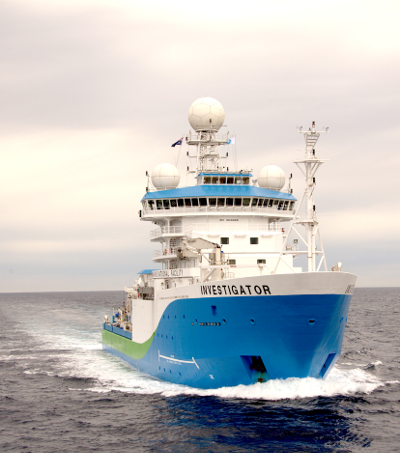Sea labs set sail
 CSIRO is bringing together international laboratories to help improve ocean studies.
CSIRO is bringing together international laboratories to help improve ocean studies.
Australia's national science agency is spearheading a groundbreaking expedition to the Southern Ocean, involving 14 prominent ocean chemistry laboratories from 12 nations. Departing from Hobart earlier this week, the International Nutrient Intercomparison Voyage (INIV) aboard the research vessel Investigator aims to collect crucial ocean data and facilitate a comparative analysis of ocean measurement techniques.
“The voyage offers a unique opportunity for collaboration and cooperation between global ocean chemistry laboratories that collect data to help us monitor the health and productivity of our oceans,” says Andreas Marouchos, CSIRO Principal Research Engineer and voyage Chief Scientist.
The two-week expedition represents a rare occurrence during winter due to the extreme conditions typically experienced in the Southern Ocean. Consequently, the data set gathered will be exceptional and contribute to a better understanding of nutrient variations throughout the year.
The Southern Ocean plays a critical role in absorbing approximately 40 per cent of human-generated carbon dioxide and sustains vital food webs and productivity with its nutrient-rich waters.
Researchers participating in the voyage will employ the advanced oceanographic instruments and onboard laboratories of the RV Investigator to study ocean properties and nutrients.
Dr Mariko Hatta from the Japan Agency for Marine-Earth Science and Technology (JAMSTEC) has highlighted the voyage's significance in establishing a global network between laboratories, saying; “This voyage will not only improve the quality and compatibility of the global database but also provide us with a unique opportunity for educational networking and future collaboration”.
The voyage also aims to share knowledge gained through workshops and presentations conducted on board.
Furthermore, participants will deliver presentations to school students in honour of World Oceans Day on June 8.
With participating countries including Japan, China, South Korea, the United States, the United Kingdom, Canada, Brazil, Argentina, Spain, the Netherlands, France, and Australia, this collaborative effort is endorsed by renowned organisations such as the Global Ocean Ship-Based Hydrographic Investigations Program (GO-SHIP) and the United Nations Decade of Ocean Science (UNDOS).
The RV Investigator, as part of the Australian Marine National Facility, is kept afloat by the Australian Government's National Collaborative Research Infrastructure Strategy (NCRIS).








 Print
Print